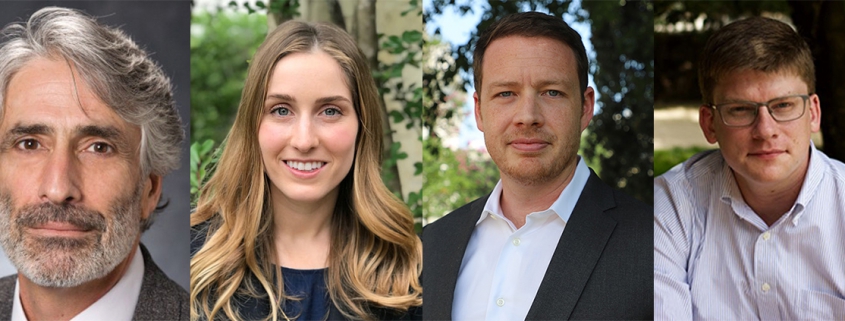UGA receives grants from The Stanton Foundation to research, teach nuclear security
The University of Georgia School of Public and International Affairs (SPIA) recently received two grants from The Stanton Foundation that will support research and education efforts related to nuclear security.
One grant will leverage the considerable network of strategic trade control (STC) professionals that SPIA’s Center for International Trade and Security (CITS) has built over the last three decades to field a series of surveys and experiments designed to assess the state of global STC efforts and the conditions under which sanctions are likely to generate additional compliance.
“The Center for International Trade and Security has an unrivalled global network of experts who work on the frontlines of surveilling dual-use technologies that could be used to create nuclear weapons,” said Dr. Matthew R. Auer, Dean and Arch Professor of UGA’s School of Public and International Affairs. “Enabled by support from the Stanton Foundation, CITS is in a unique position to learn about the day-to-day practice of strategic trade control from these frontline experts through survey work and experiments.”
The Foundation was created by Dr. Frank Stanton, who is widely regarded as one of the television industry’s founding fathers. His involvement with nuclear issues began with his appointment to a committee convened by Dwight Eisenhower in 1954 to develop the first comprehensive plan for the survival of the U.S. following a nuclear attack. Stanton had lead responsibility for developing a plan for national and international communication in the aftermath of a nuclear incident.
In accordance with Stanton’s wishes, the Foundation funds work in nuclear security, including support for new course development of nuclear security related topics at schools and universities both within the U.S. and abroad.
From its founding in 1987, CITS has focused intensely on capacity‐based compliance issues and has supported a variety of U.S. government efforts aimed at building capacity among partner states, especially those struggling with technical or bureaucratic capacity issues.
The Gary K. Bertsch Director of the Center for International Trade and Security, Justin Conrad, is the lead faculty member on the project and will be collaborating with Jeffrey D. Berejikian and Ryan Powers to accomplish the purpose of the grant.
Conrad is expectant about the potential long-term outcomes of their research. “This generous grant from the Stanton Foundation is critical for our efforts to identify gaps in global nonproliferation activities. We are examining the ‘disconnects’ between theory and practice in strategic trade management, and we hope to continue working with Stanton to inform future policies and prevent the spread of weapons of mass destruction.”
The Foundation’s second grant was awarded to Molly Berkemeier who also teaches at CITS. As part of the Stanton Foundation’s mission to encourage the development of the next generation of policy researchers and expand public understanding of nuclear issues, the Foundation will support Berkemeier’s development of a new and innovative course focused on nuclear security policy issues entitled Nuclear Politics to be taught fall 2020.
Berkemeier spent her summer carefully developing the new undergraduate course on nuclear politics. The course will expose undergraduates to important questions about nuclear proliferation, deterrence and arms control. The students will learn through a mix of lectures, discussions and simulations. The development of the new course would not have been possible without the generous support of the Stanton Foundation.
“Among other things, the grant has allowed Dr. Berejikian and myself to develop a new simulation examining contemporary issues of nonproliferation and disarmament. Overall the course will increase literacy on issues of nuclear security in the next generation of informed citizens and foreign policy professionals,” said Berkemeier.




